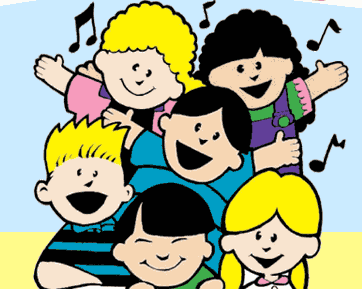
Scrooge Chose To Be Scrooge.
 Mamacita says: Oh, my dears, it’s so close now, so very, very close.
Mamacita says: Oh, my dears, it’s so close now, so very, very close.
There are a lot of old, boring, easily offended, humorless people out there who don’t care much for the excitement, the wonder, the sparkles and reflections and tinsel and candles and suspense and giggles and hand-clapping and jammied children and ribbons and pretty paper and surprises, and this makes me sad for them. However, I also figure they were pretty much the same when they were young younger.
I think the ability or tendency to glow and laugh and clap and appreciate things is there in all of us, and whether we let the light of these things shine through us – or not – is a choice we make. Scrooge was Scrooge because he chose to be Scrooge. Yes, certain childhood happenings helped mold him, but ultimately, he chose his life. Free will choice. All of our lives are that way. We can’t always control the circumstances, and sometimes Karma really hits us below the belt, but we can always control the way we deal with it. Most of us go up and down, back and forth, hot and cold with our reactions; even-keeled people are rare and actually rather boring. But whether we reel from the blows and get back up, or stay down and cover our heads and wait for more, is up to us. We’ve all been there.
Me, I love Christmas. What, you didn’t know? 🙂
Christmas Eve is such a magical time. It’s all ahead of us, you see. To paraphrase Katie, age 8, in my all-time favorite Christmas novel What Child Is This, by Caroline Cooney, the night before Christmas isn’t called a ‘night,’ it’s called ‘eve,’ and Christmas morning isn’t called ‘morning,’ it’s ‘morn.’ Eve and morn: two special words to highlight two special times. All the other times of the year have mornings and evenings, and New Year’s has “eve,” but only Christmas has both eve and morn.
Eve and morn are special.
How special are they? They are special already, in their own right, but how you make them special for yourself and for your children is entirely up to you. As parents, we have the power to separate regular days from holidays, and I hope you give them memories they will cherish all their lives, so much so that they will pass the glory along to their own children.
Children flourish with roots, but they soar with wings.
May your Eve be full of anticipation and warmth, and may your Morn be all you hoped it would be.
Where Did the Music Go?
 Mamacita says: Back in the day (when dinosaurs roamed the earth) every American student knew hundreds of songs – all the same songs, for the most part. Every Wednesday morning, kids all over the States would gather in their school’s auditorium, or cafeteria, and sing. In my little grade school, it was called the All-School Sing. The music teacher was in charge, and she didn’t ‘teach’ the students much of anything. She just started playing and all the older kids joined in, and after a few weeks the younger kids had picked up all the lyrics and joined in, too. It was an awesome way to learn the songs, imitating the cool big kids!
Mamacita says: Back in the day (when dinosaurs roamed the earth) every American student knew hundreds of songs – all the same songs, for the most part. Every Wednesday morning, kids all over the States would gather in their school’s auditorium, or cafeteria, and sing. In my little grade school, it was called the All-School Sing. The music teacher was in charge, and she didn’t ‘teach’ the students much of anything. She just started playing and all the older kids joined in, and after a few weeks the younger kids had picked up all the lyrics and joined in, too. It was an awesome way to learn the songs, imitating the cool big kids!
Every kid in my generation and before knew all the words to all the verses of most ‘standard American songs.’ We had songs for every holiday, every season, every celebration known to mankind, yes, even the minority ones. We knew dozens of patriotic songs. Funny songs. Indiana songs.
Even more importantly, we knew the major themes from hundreds of classical selections, because they were taught to us beginning in kindergarten, with age-appropriate lyrics. To this day, my generation can hum great classical music.
I think my generation, and the half-generation after me, were the last to benefit from this fantastic program. Shortly afterwards, it was deemed a waste of valuable class time, and it was done away with.
In my grandparents’ generation, music was so important in the schools that if the orchestra lacked a particular instrument or chair, a professional was hired to fill it. If you read “A Girl of the Limberlost,” you will see examples of such things. (you really should read that book, but before you do, you have to read “Freckles.” It comes first. Both are by Gene Stratton Porter, and are absolutely wonderful. WONDERFUL.)
I still have my music textbooks from grade school. They are full of sweet little songs, most of which use the melodies of famous classical compositions. As children we didn’t know that, of course, but as we got older and found out what we actually KNEW, we were astounded and felt so cool. The love of those melodies had been instilled in us, and it would never leave us. And it made us seek out the actual compositions themselves, that we might hear it all.
And in the back of each of those books is the synopsis of an entire opera.
What do kids learn in music class nowadays? People like my sister do a fantastic job, considering the limitations put upon them, and the ridiculous even-larger-than-regular-classes student population thrust upon them all at once, but many schools have done away with music altogether, because they need the time for ISTEP review. In most schools, the students wouldn’t recognize a treble clef if it hit them on the head. And Beethoven is a big dog.
I used to quiz my middle school students about songs. Few knew many that weren’t on the radio or TV. Why don’t kids these days know anything about real music? Because they aren’t taught anything about it. And since the schools dropped the ball, others picked it up and ran with it, and our seven-year-olds are wearing thongs and crop tops and running around the playground singing about sex. It’s sadder than we can even comprehend.
Oh, I don’t knock their music. I like a lot of it. It’s just sad that they have nothing in addition to it. They have no firm musical foundation, so they really can’t say “this is good because. . . . ” or “this is terrible because. . . . .”
And when they hear a song, they don’t associate it with a person, or a place, or an occurrence, or where they were or what they were doing. They associate it with a video. Their musical memories revolve around seeing a celebrity lip-synch.
No wonder so many things just plain ‘suck.’ They suck, because they’re bad and there’s no background or knowledge about why they suck.
Personally, I believe that messing with music programs in schools sucks, and I CAN tell you why. And I just did.
My mind’s eye can still see the Parkview School’s cafeteria full of little kids, sitting on the floor, grouped by grade and classroom, singing away. I’m sure there were discipline problems, but I don’t remember any. The kids were too busy modeling the big kids and singing. Miss Keach, the traveling music teacher, sat at the piano, on the stage, playing and singing along with us. She was wonderful. She visited each classroom about once a week, teaching us the basics, and she expected us to use them while we sang our cares away at the All School Sing on Wednesday morning. And we did.
I still can. Every word of every song. It’s won me many a Jeopardy round with my family, and brought me amazing comfort and given me innumerable connections with other seemingly unrelated things, until we remember that nothing is unrelated, everything is connected to everything else, and no piece of learning is ever too small that it might not someday be the key we need to unlock and open the door to the universe.
Bring back the All School Sing.
What Is Education?
 Mamacita says: It was his third strike for the same offense. Last Wednesday morning, after class, I had to play “Plagiaristic Confrontation” again, and it was no fun. It’s never fun. All throughout my career, I’ve listened to teachers brag and purr about ‘bringing a student down,’ and I’ve sat there shaking my head in amazement, wondering what kind of people were in charge of classrooms these days. “Bringing a student down” was never a goal of mine; I am frankly horrified that anyone would do so happily, and that anyone could gloat about it afterwards. I always thought that one of my functions was to help students UP, not bring them down and brag about it to others who sat there applauding.
Mamacita says: It was his third strike for the same offense. Last Wednesday morning, after class, I had to play “Plagiaristic Confrontation” again, and it was no fun. It’s never fun. All throughout my career, I’ve listened to teachers brag and purr about ‘bringing a student down,’ and I’ve sat there shaking my head in amazement, wondering what kind of people were in charge of classrooms these days. “Bringing a student down” was never a goal of mine; I am frankly horrified that anyone would do so happily, and that anyone could gloat about it afterwards. I always thought that one of my functions was to help students UP, not bring them down and brag about it to others who sat there applauding.
Maybe I’m just an old softy (although there are those who would argue that point!!) but I just can not even imagine being happy about a student who was in trouble. Even when that trouble was the student’s own choice and fault, I’m still sorry, not gleeful. I might think things like, “Well, too bad, but life is full of choices and choices bring consequences, etc. etc.” but I couldn’t clap my hands and laugh because someone who is supposed to be the adult in charge gets off on bringing someone who is SUPPOSED to need help, down.
I might cry, but I wouldn’t laugh.
Wednesday, in the hallway after class, talking to that student, reminding him about all the previous reminders, explaining the consequences of his choice to him, watching him wilt and lean against the wall and then cover his face with his hands and weep, did something to me that day. It made me want to write a post about younger students, and how we as the adults who are in charge need to do everything in our power to help them attain the skills they so desperately need in order to care for themselves and others as they grow up; we need to help our children appreciate culture so they might understand music and art and allow them to enrich and soothe their souls and give them something positive to do with leisure time; we need to help our children learn and understand everything we can possibly expose them to in the short amount of time they are entrusted to us; we need to show them how to figure things out all by themselves, and to appreciate those things that have no explanation at all, and to help them see that these are often the coolest things of all. We need to teach them compassion by demonstrating compassion; even more importantly, we need to teach them about empathy.
THIS is the job of the parent-school team. Not drilling for ISTEP, not months of reviewing so a school will look good on paper and get more money, not sitting for seven hours in a classroom for thirty minutes of enchantment and a list of vocabulary words, not going over the same stuff again and again and again because two kids still can’t do it, not hanging posters that say “Zero Tolerance” all over a school that publically advertises its refusal to give second chances. . . . .
Good schools are not all about more money. You can throw money into a pigpen all day, and the pigs won’t care. Good schools are all about education. Education has been defined as “A change in behavior.” I want to qualify that statement by saying that to me, education is a POSITIVE change in behavior. And if we have to do a little tweaking to get the students’ attention, then so be it. And if we have to do a little strong -arming to get some parents to cooperate, well, so be that, too. Let the tweaking and strong-arming begin.
We must help our children learn, that they might become educated, that perhaps the behavior of the entire world might change..
If we do these things, then our children will never have to stand out in the hall with me, faces crumpled in horror, leaning against the wall and weeping because of the consequences of their own actions.
And I won’t have to go home and do the same.






